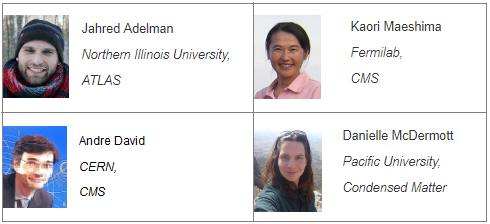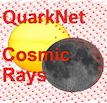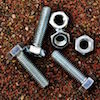
Spotlight on International Masterclasses Moderators
You meet one or two maybe once or twice per year in masterclass videoconferences. They are full of information, often humorous, and excited about particle physics. They are the moderators of the International Masterclasses videoconferences. And who they are is as varied as can be: mostly particle physicists but from every sort of background and very different, interesting, personalities. Despina Hatzifotiadou, on the ALICE experiment at CERN and a member of IPPOG, loves the cinema, saying, ". . . it's the form of art closest to my heart." Danielle McDermott, a mentor of the Virtual QuarkNet Center and a condensed matter physicist at Pacific University in Oregon, has her interests in the classroom and outdoors, explaining, "The only thing I like better than teaching physics is hiking up a mountain, enjoying the view, and the surroundings of the forest." And Andre David of CMS and CERN ". . . once sailed from Brazil to Barbados to the Bermudas, crossing the equator." Our moderators do enjoy working with the students. Says Allie Reinsvold Hall of Notre Dame and CMS, "It is rewarding to see the enthusiasm of the high school students and how much they have learned in a single afternoon." Scarlet Norberg, a CMS postdoc at the University of Puerto Rico based at Fermilab, agrees: "Helping the kids learn helps me to understand how to explain my work to family and friends not in the field. Thanks!" Allie has a similar concern about explaining what she does: "My family still isn’t convinced I’m not just making up words on the spot when I tell them my research is to search for evidence of squarks, gluinos, winos, and binos." We leave it to Andre to sum up what many of us think about the unique nature of high-energy physics and International Masterclasses: "Particles have no nationality." You can meet all of the masterclass moderators by scrolling down on the appropriate schedule pages for CERN and Fermilab.


News from QuarkNet Central
International Muon Week is the big item! (We even changed the icon of this section to mark the event.) IMW2018 will take place March 12–16 (next week) with two potential different defined projects: muon flux (most users) and speed of muons (advanced users). Haven't registered yet? It is not too late; please register on the Google form. Get those detectors revved up and running. If you need help, you can access the expertise of the cosmic fellows by sending e-mail to e-labs-help@fnal.gov, or contact Mark. You can learn a bunch more in the IMW2018 announcement.
International Masterclasses 2018 are at the halfway point at CERN and start today at Fermilab with a videoconference between Quincy, Illinois and Rio de Janeiro, Brazil. Follow them on the IMC twitter feed, or tweet your own masterclass experience, #LHCIMC18. Here's the latest IMC circular; if you have not yet signed up for a masterclass and are interested in joining, contact Ken.

QuarkNet Nuts and Bolts
Would you challenge your students and yourself by running the Time of Flight study for International Muon Week? Go for it, but first read the Time of Flight tutorial in the Cosmic Ray e-Lab. Not connected to the QuarkNet e-Lab? You can still do the flux study by collecting your data into a spreadsheet from status lines or, if you are not using a QuarkNet DAQ, whatever your DAQ output is.

Physics Experiment Roundup
Let's get off to a rambling start with this blog post at Interactions by Peter Knapp of the ALPHA experiment at CERN, getting into his work, science communication, and an ATLAS masterclass. Getting to neutrinos, even a large experimental facility like LBNF has theorists to help point the way; read about neutrino theorist Jogesh Rout, in symmetry.

Resources
Beyond the cool equipment, people and ideas make experimental physics work. Read about two amazing women: National Society of Blасk Physicists President Renée Horton, in symmetry, and CERN Director General Fabiola Gianotti in the New York Times. Catch a video of Fermilab neutrino physicist Karl Warburton. For ideas, how about quantum computing from Fermilab and parallel universes in symmetry? And here's A minute with Felix Sotres, Fermilab software developer
Interested in modeling in physics instruction? You might want to check out summer modeling workshops.

Just for Fun
We have not heard from Physics Gіrl in a while, so here are two offerings: Ultraviolet Catastrophe and Cosmic Quantum Bell Test.
QuarkNet Staff:
Mark Adams: adams@fnal.gov
Ken Cecire: kcecire@nd.edu
Deborah Roudebush: droudebush@cox.net
Jeremy Smith: jsmith10@bcps.org
Shane Wood: swood5@nd.edu